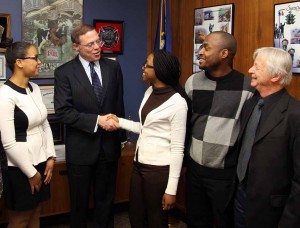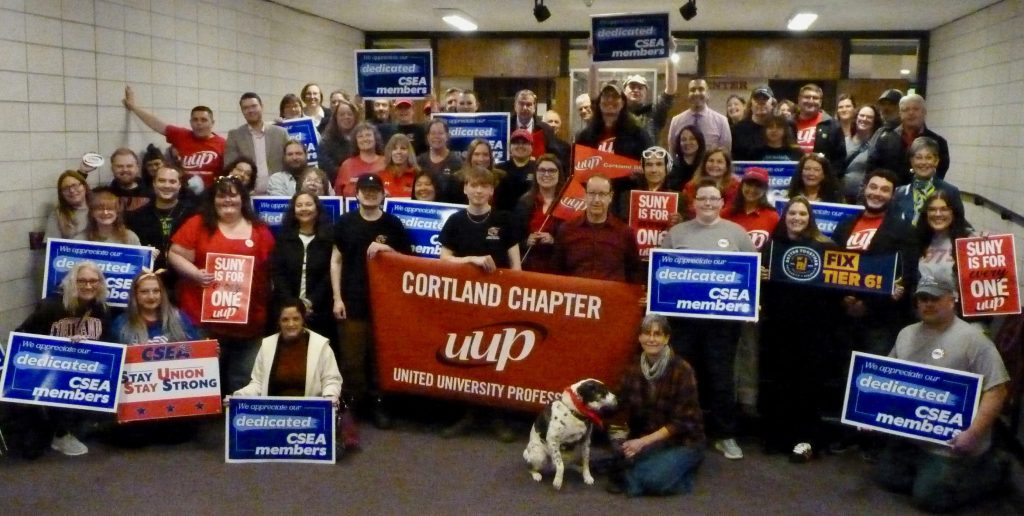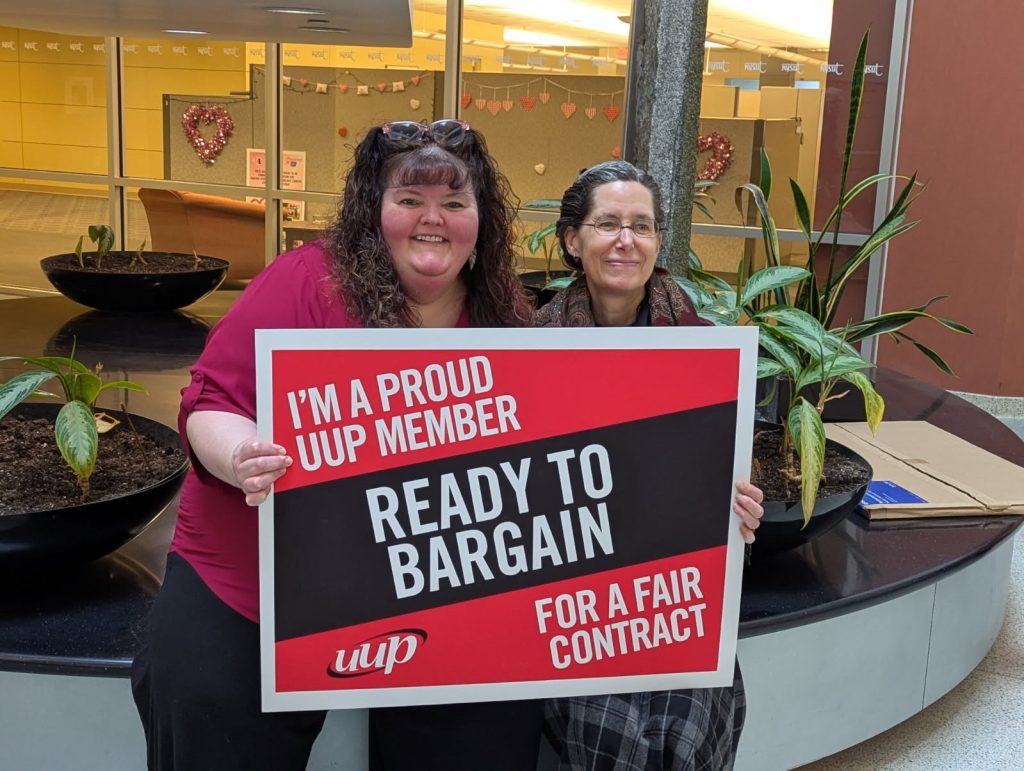SUNY Cortland students and their advisor, UUPer Marc Dearstyne, right, meet with Assemblyman Will Barclay to request additional funding for SUNY’s Educational Opportunity Program (EOP) and Educational Opportunity Centers (EOC).
The Cortland students were among nearly 300 students from 16 SUNY campuses that traveled to Albany Feb. 12 for UUP’s EOP/EOC Advocacy Day.
The students, along with UUP members involved with the programs, visited the offices of more than 100 lawmakers and urged them to restore a $632,400 reduction in EOP funding in the 2014-15 Executive Budget. The students also pushed lawmakers to increase funding for EOC. State aid for EOC is unchanged in the proposed spending plan.
EOP students, such as Sasha Miller of Geneseo and Demar Harvey of UBuffalo, talked about the opportunities EOP and EOC have given them and how the programs have changed their lives.
“College wouldn’t be a reality for me without EOP,” Miller said. “With the financial support and counseling they provide, I feel I can succeed.”
“Being involved with EOC started me on the track to secure stability in my life,” said Harvey, who said he lost his job and was unsure where to turn before enrolling in the program.
Students followed the advice of UUP President Fred Kowal, who told them to speak from the heart when talking to legislators.
“These lawmakers want to hear your personal stories and what these programs mean to you,” Kowal said, as he greeted students prior to their meetings with lawmakers. “Don’t underestimate the power of your story.”
UUPer Elyzabeth Wengert, director of SUNY Oswego’s EOP, explained the importance of the program to an aide for Assemblyman Bill Nojay. The program receives about 2,000 applications each year, but only has resources to enroll 300 students.
“We are turning away 1,700 (applicants) each year,” she said. “We are changing the trajectory of their future.”
EOP provides academic and career counseling and financial aid to students from low-income families. EOCs help prepare students for college or vocational training programs.






